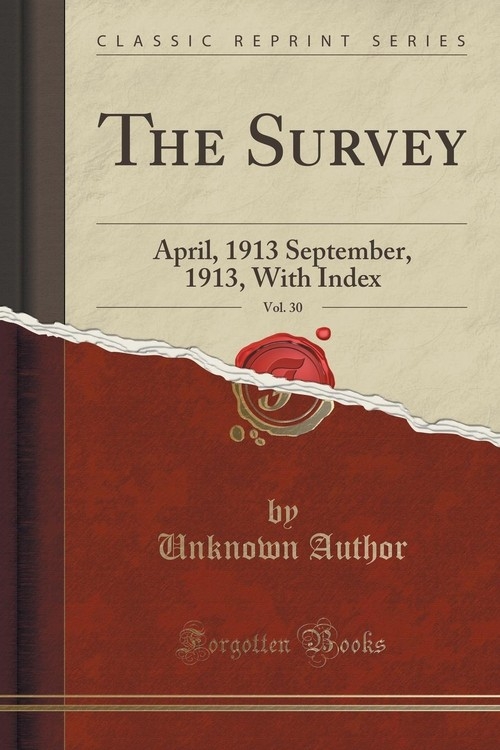The Survey, Vol. 30 April, 1913 September, 1913, With Index (Classic Reprint)
Author Unknown
The Survey, Vol. 30
April, 1913 September, 1913, With Index (Classic Reprint)
Author Unknown
- Wydawnictwo: FB &c Ltd
- EAN: 9781332202355
- Ilość stron: 784
- Format: 15.2x22.9cm
- Oprawa: Miękka
Niedostępna
Opis: The Survey, Vol. 30 - Author Unknown
Excerpt from The Survey, Vol. 30: April, 1913 September, 1913, With Index
An Industrial Welfare Commission is created to determine minimum wages, maximum hours and standard conditions of labor.
The commission is authorized to call a conference of representatives of the employers, the employers and the general public to investigate and make recommendations as to the minimum wage to be paid in a given industry. If the commission approves these recommendations they become obligatory. The powers of the Oregon commission to determine hours and conditions of health and morals are more extensive than those delegated to an industrial commission by the legislature of any other state. The members of the commission are to be appointed by the governor.
The successful campaign for this law and the drafting of the bill itself, was based upon an extensive investigation conducted by the Social Survey Committee of the Oregon Consumers' League. Wages, work conditions, and cost of living, were studied in Portland and elsewhere throughout the state. The inquiry was directed by a trained investigator, Caroline J. Gleason of Minneapolis, formerly a student of the Chicago School of Civics and Philanthropy. The work was started in August 1912 and the information covered 7603 women wage earners in Portland and 1133 throughout the rest of the state. Wage statistics were tabulated for 4523, and are particularly valuable in the case of the department stores which placed their pay rolls at the disposal of the survey committee. Generous co-operation from committees in twenty-five counties of the state was secured.
In the drafting of the bill the experience of the Massachusetts Minimum Wage Board was studied. Legal advice was secured and the constitutionality of the measure is upheld in an opinion by the attorney general of the state.
Social workers from Washington and California have been in touch with the investigation and the preparation of the bill. They have arranged to have bills drawn up on the same lines introduced as soon as the legislatures of their own states convene. The passage of the same measure by the three coast states is regarded by the social workers in each as a desirable and important piece of uniform legislation for an area in which industrial conditions and problems are similar.
The Social Survey Committee in its report gives the principles and facts which form the basis of the demand for the legislation as follows:
1. Each industry should provide for the livelihood of the workers employed in it. An industry which does not do so is parasitic. The well-being of society demands that wage-earning women shall not be required to subsidize from their earnings the industry in which they are employed.
2. Owing to the lack of organization among women workers and the secrecy with which their wage schedules are guarded, there are absolutely no standards of wages among them. Their wages are determined for the most part by the will of the employer without reference to efficiency or length of service on the part of the worker. This condition is radically unjust.
3. The wages paid to women workers in most occupations are miserably inadequate to meet the cost of living at the lowest standards consistent with the maintenance of the health and morals of the workers. Nearly three-fifths of the women employed in industries in Portland receive less than $10 a week, which is the minimum weekly wage that ought to be offered to any self-supporting woman wage-earner in this city.
4. The present conditions of labor for women in many industries are shown by this report to be gravely detrimental to their health; and since most women wage-earners are potential mothers, the future health of the race is menaced by these unsanitary conditions.
A New Federal Agency For Settling Strikes
An important power vested in Secretary Wilson of the new federal Department of Labor, which has hit
Szczegóły: The Survey, Vol. 30 - Author Unknown
Nazwa: The Survey, Vol. 30 April, 1913 September, 1913, With Index (Classic Reprint)
Autor: Author Unknown
Wydawnictwo: FB &c Ltd
Kod paskowy: 9781332202355
Języki: angielski
Ilość stron: 784
Format: 15.2x22.9cm
Oprawa: Miękka

























